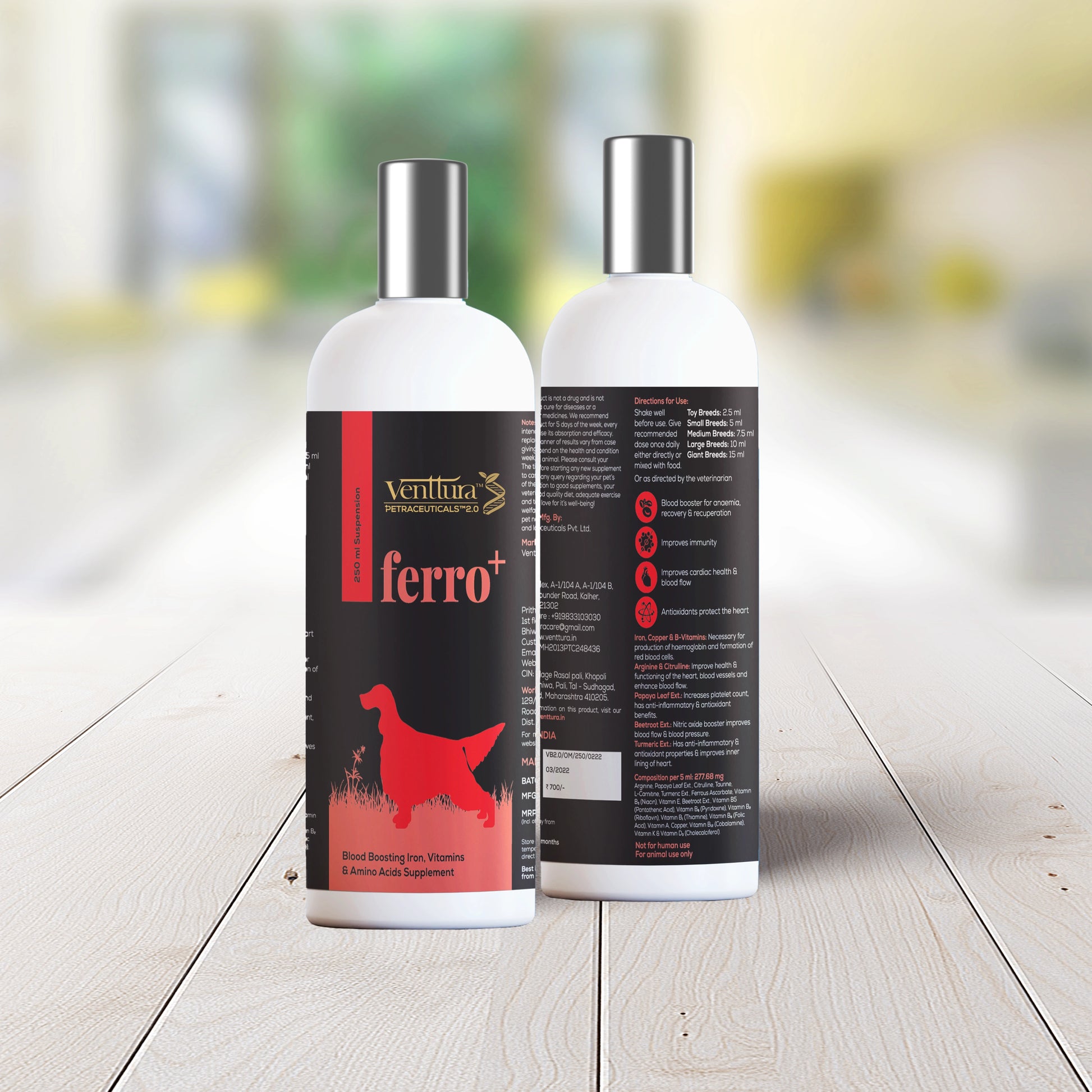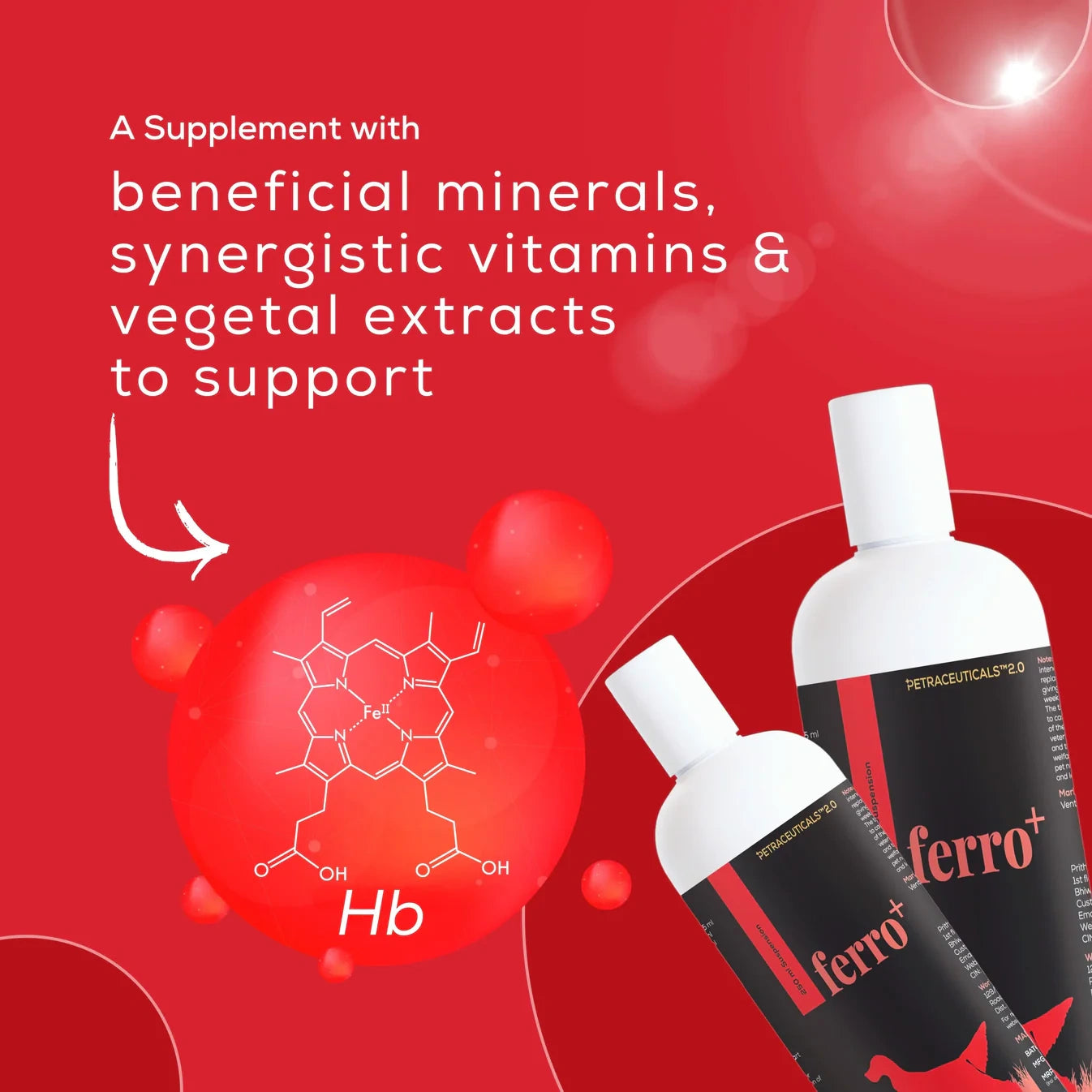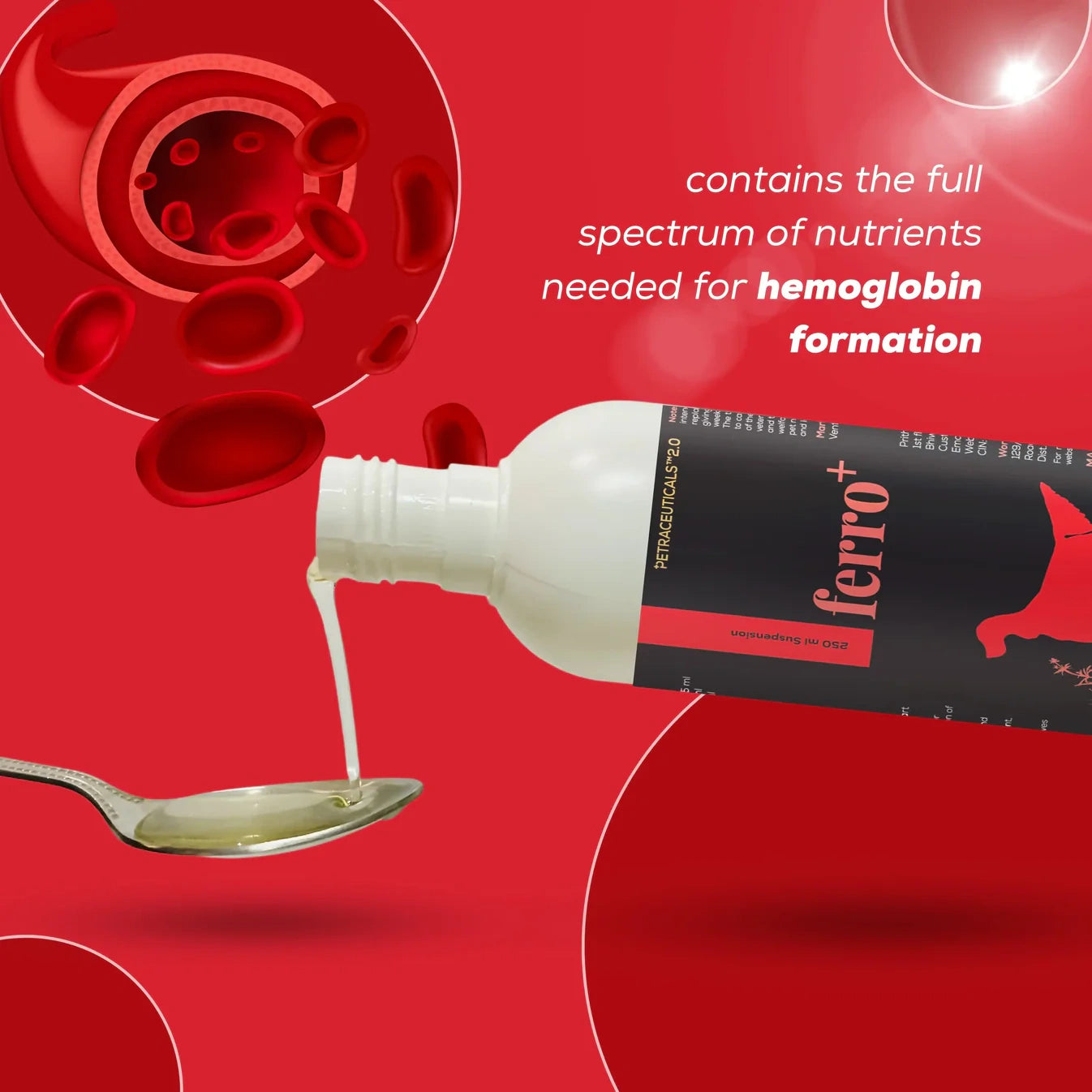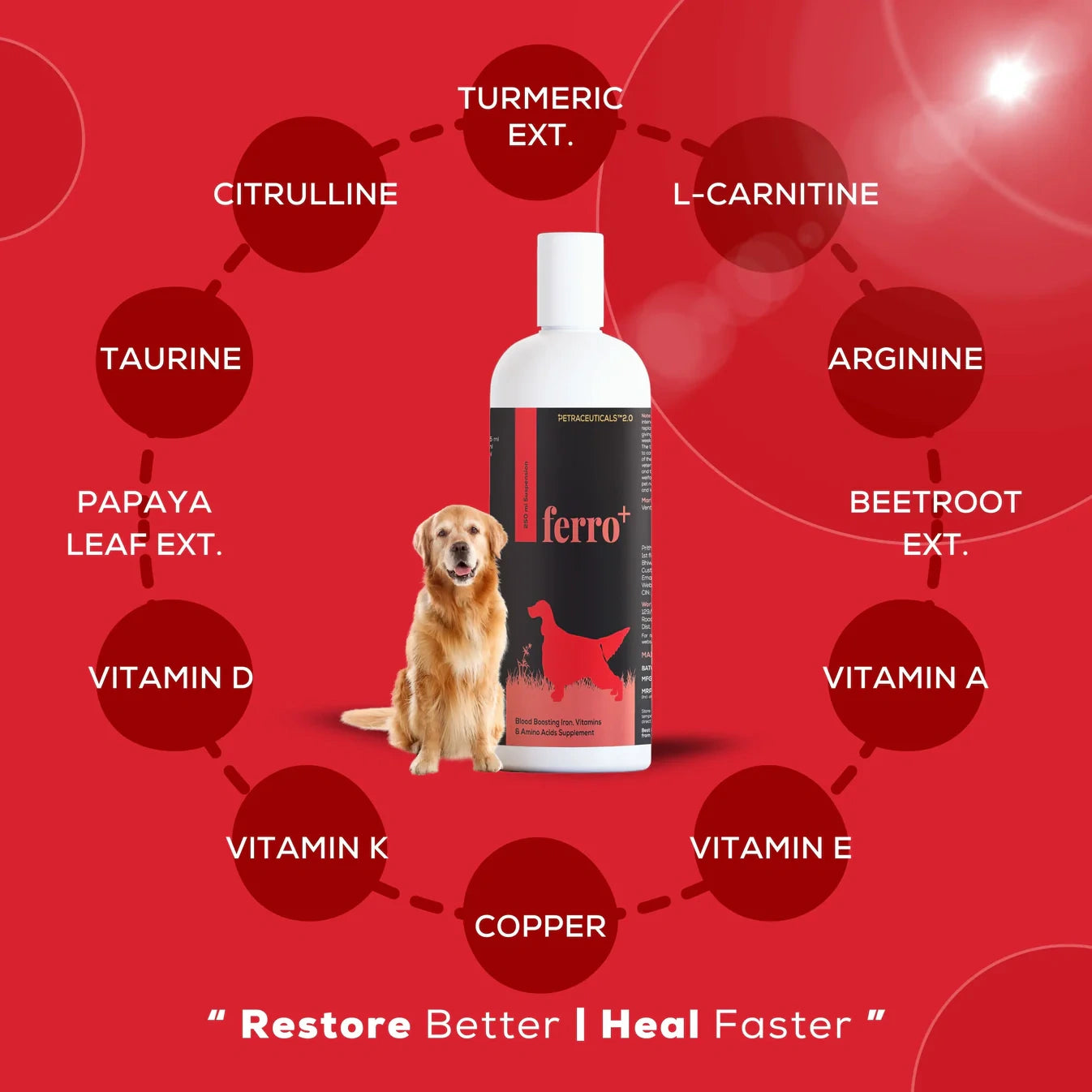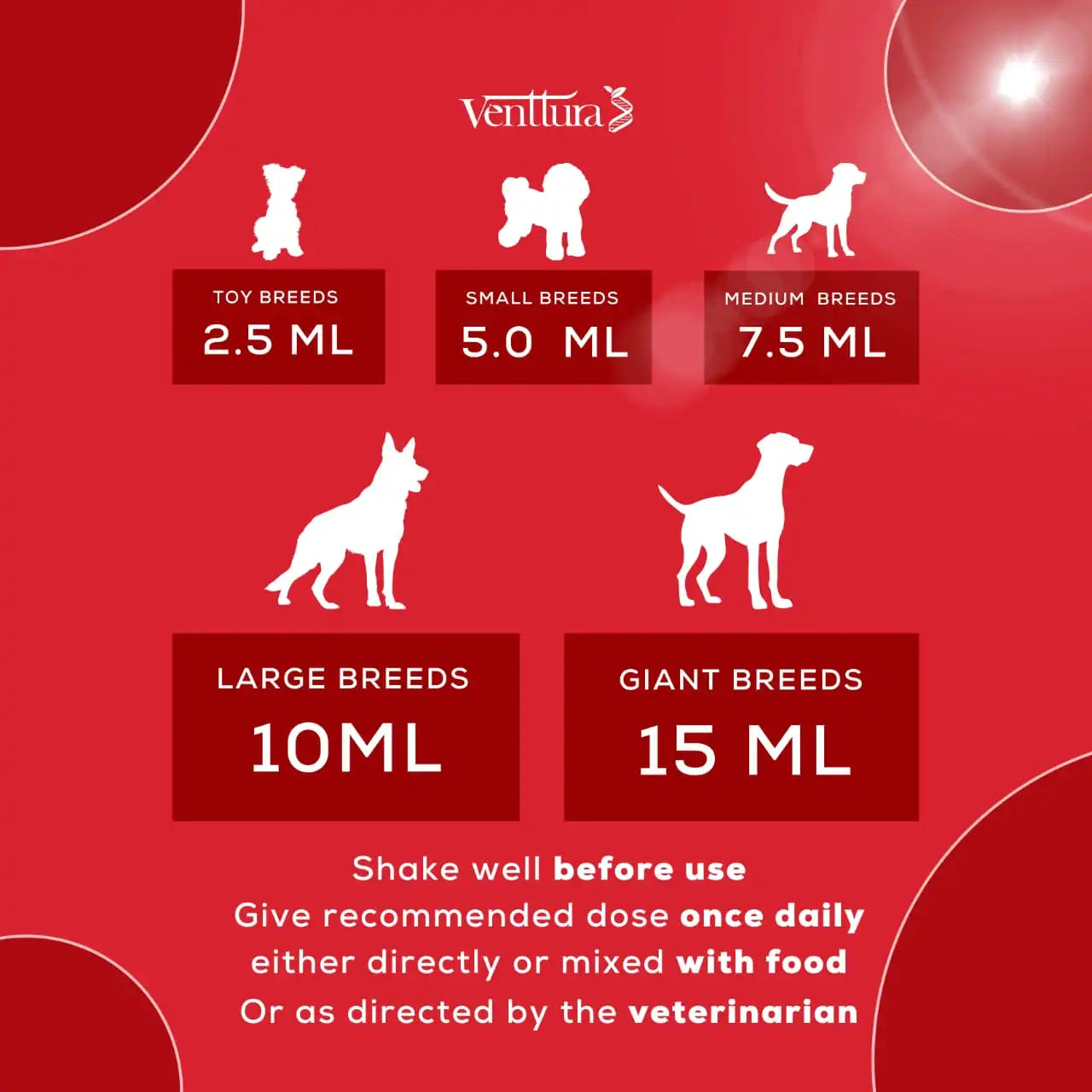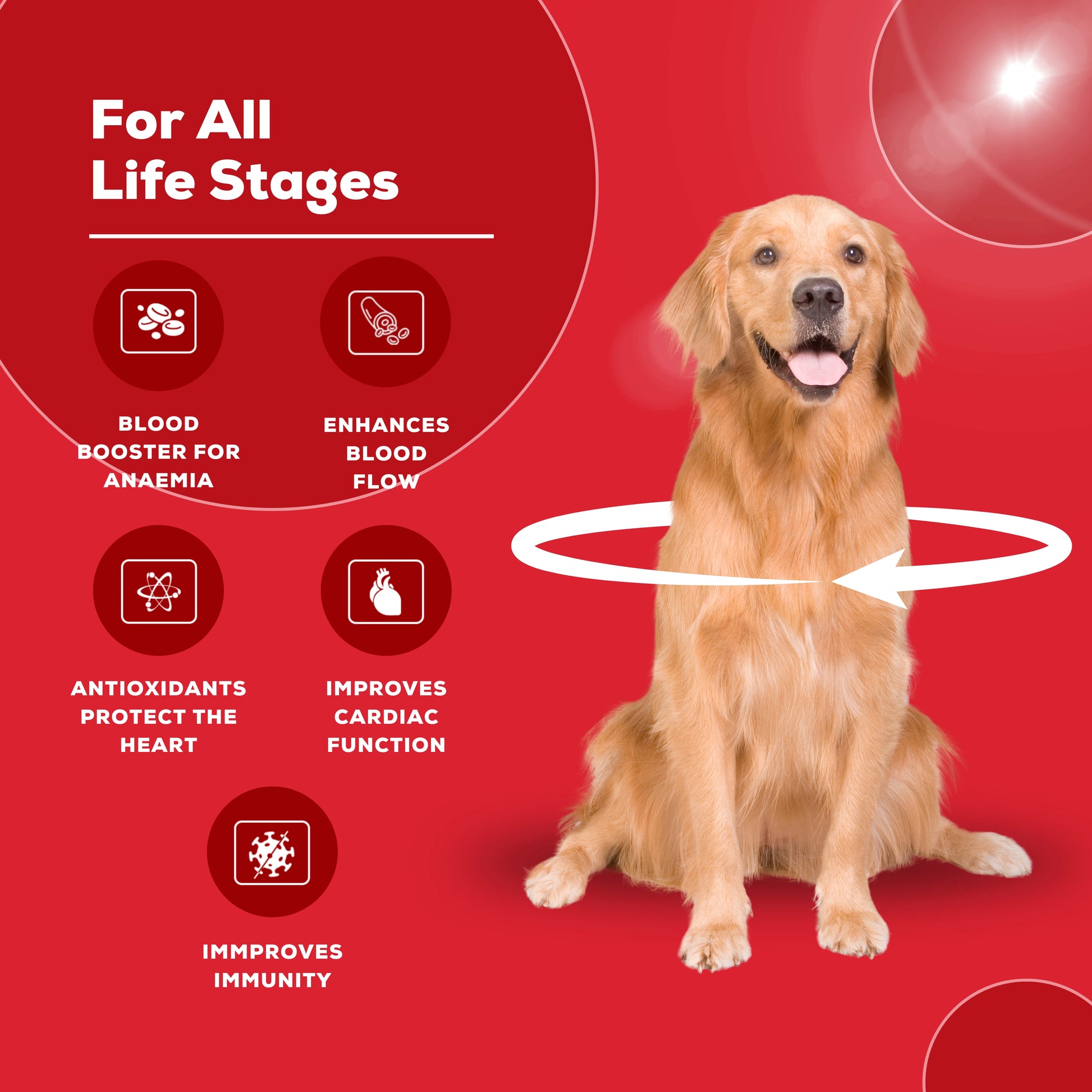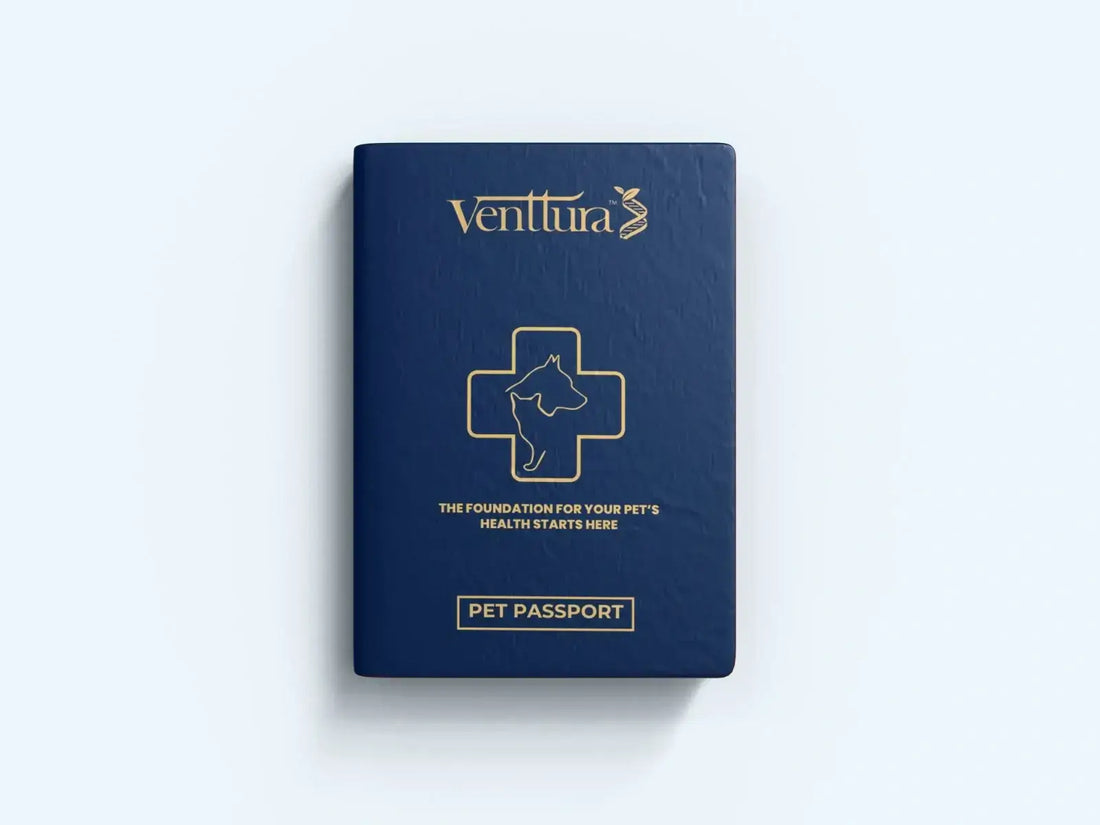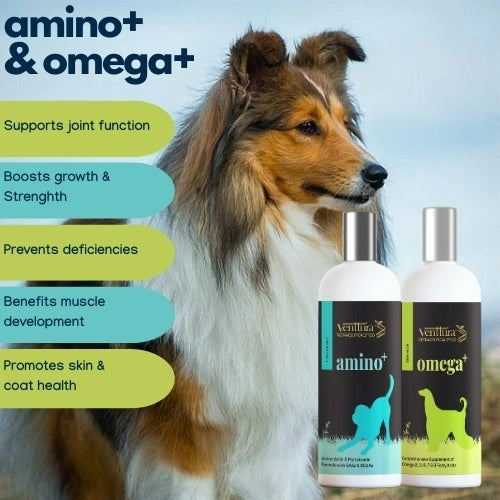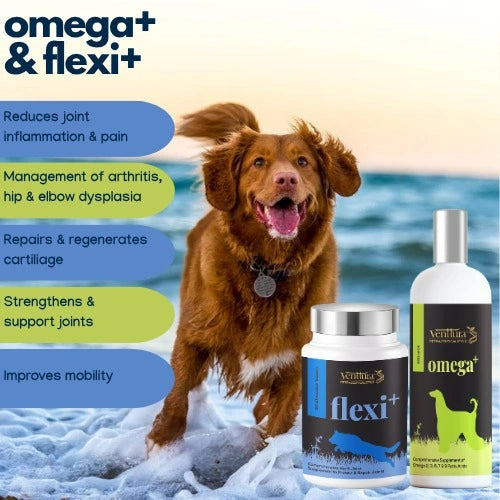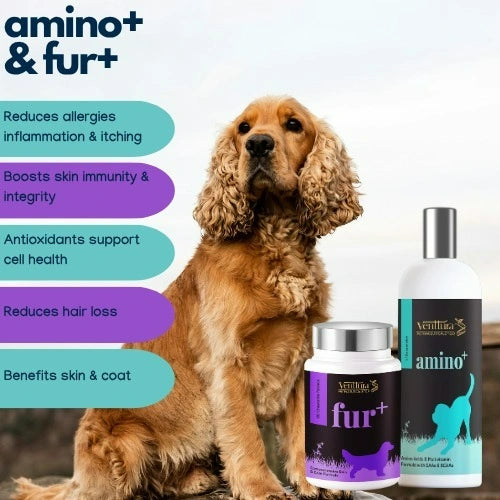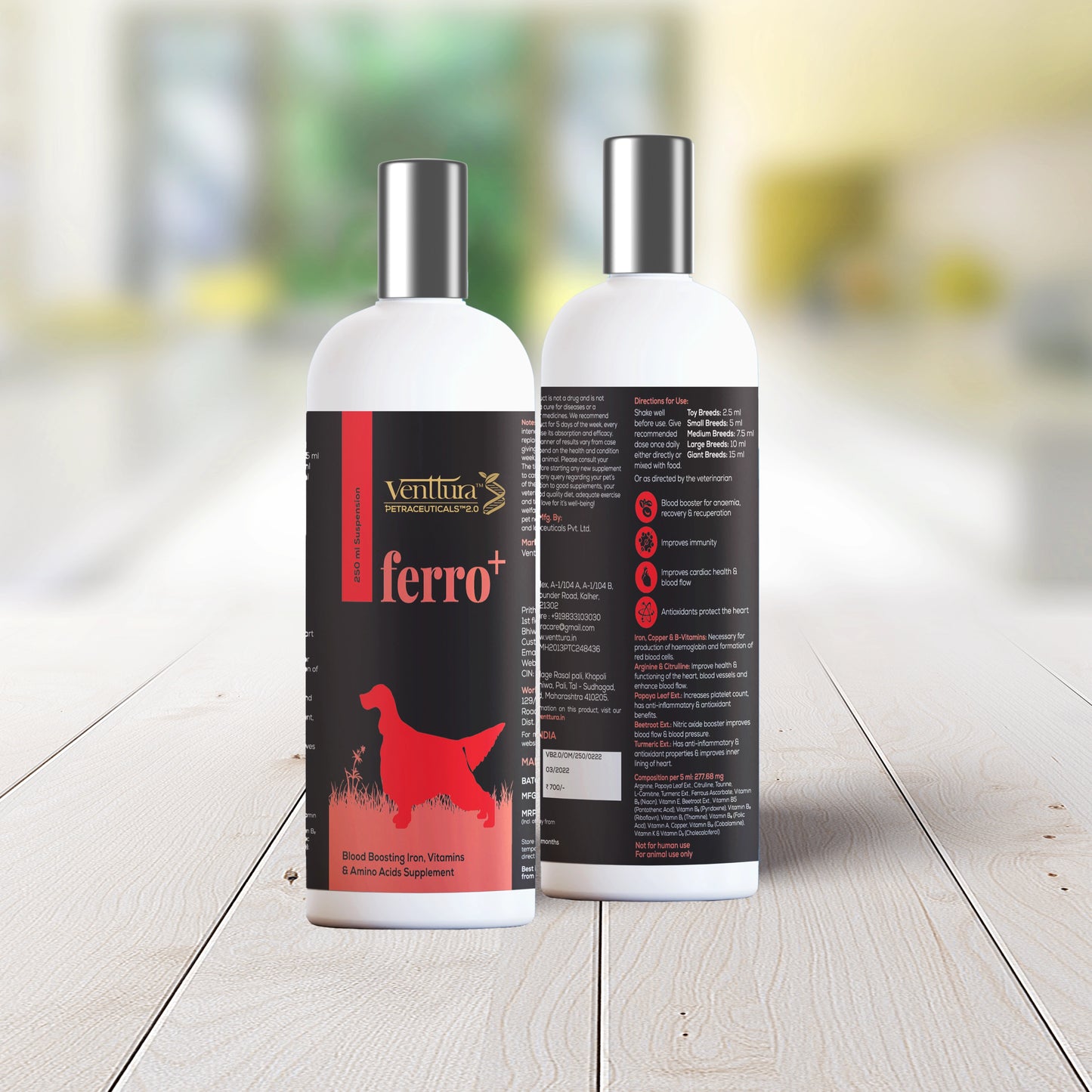
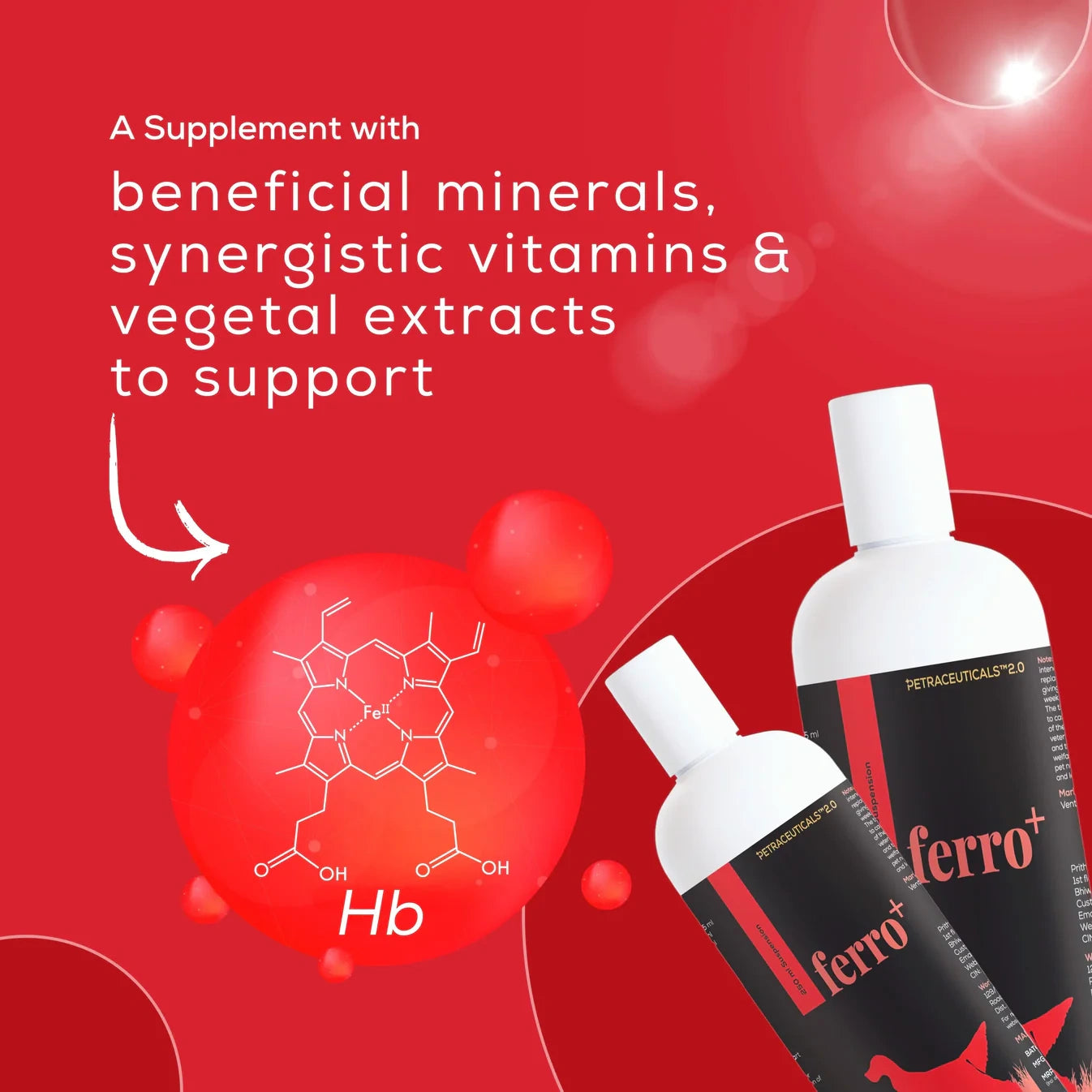
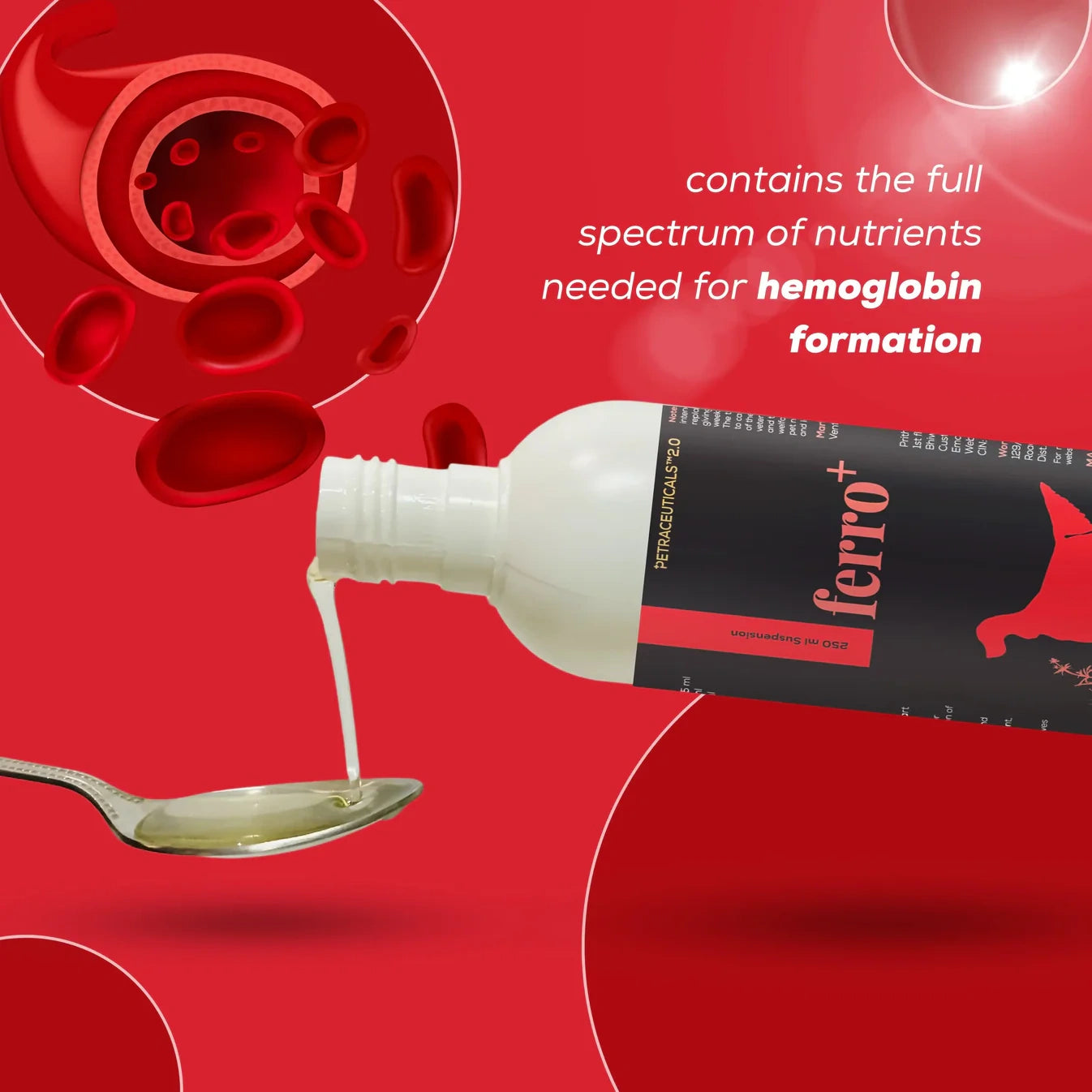
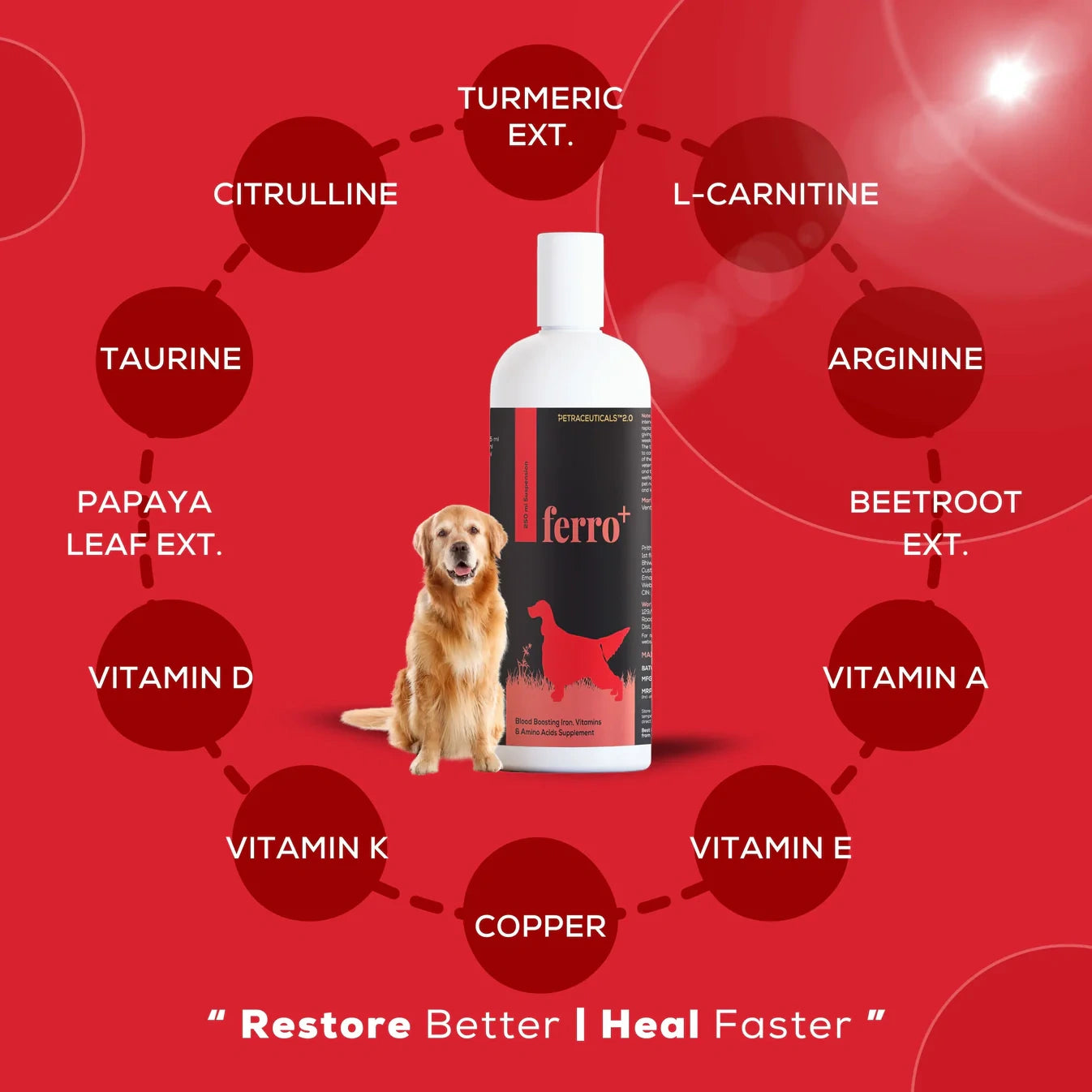
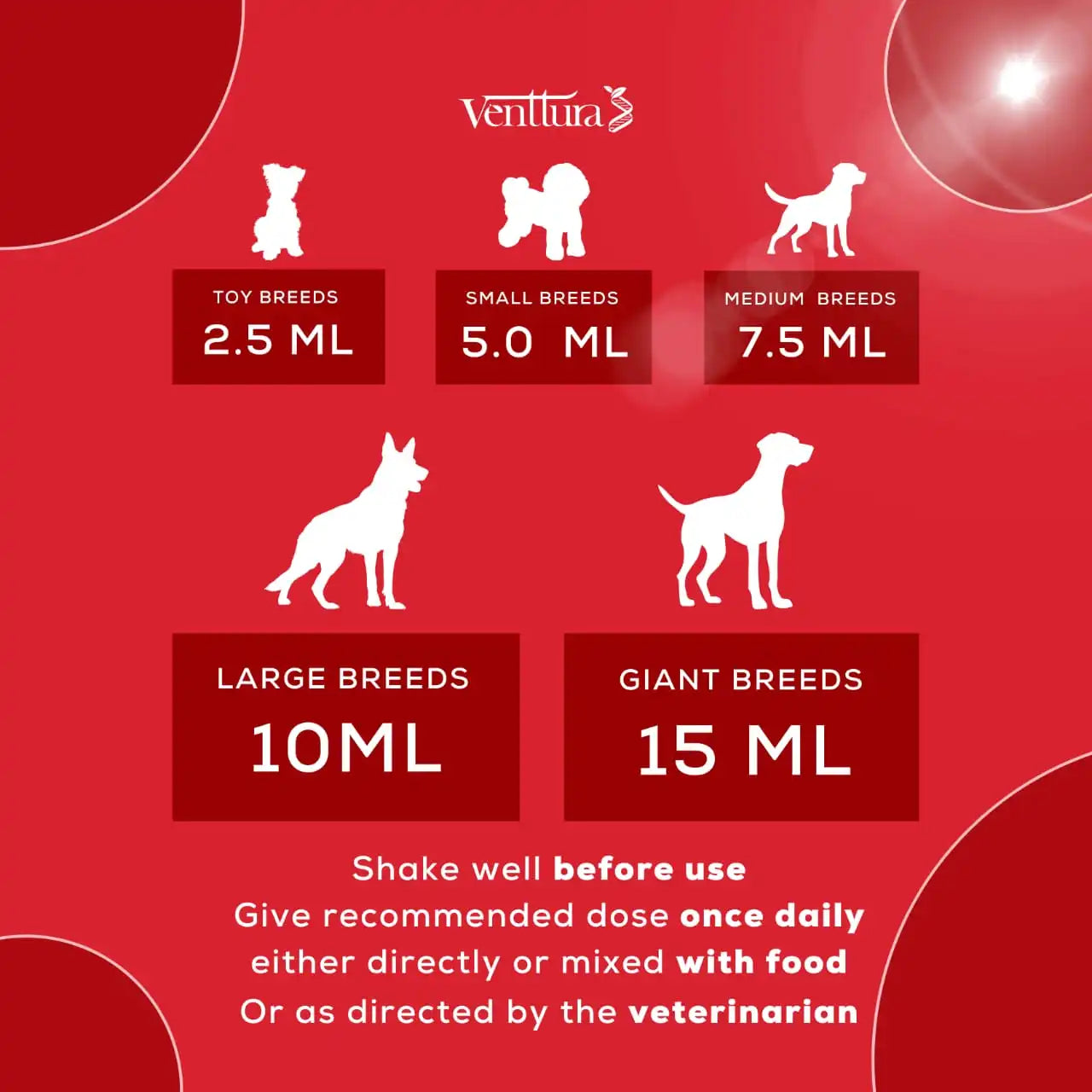
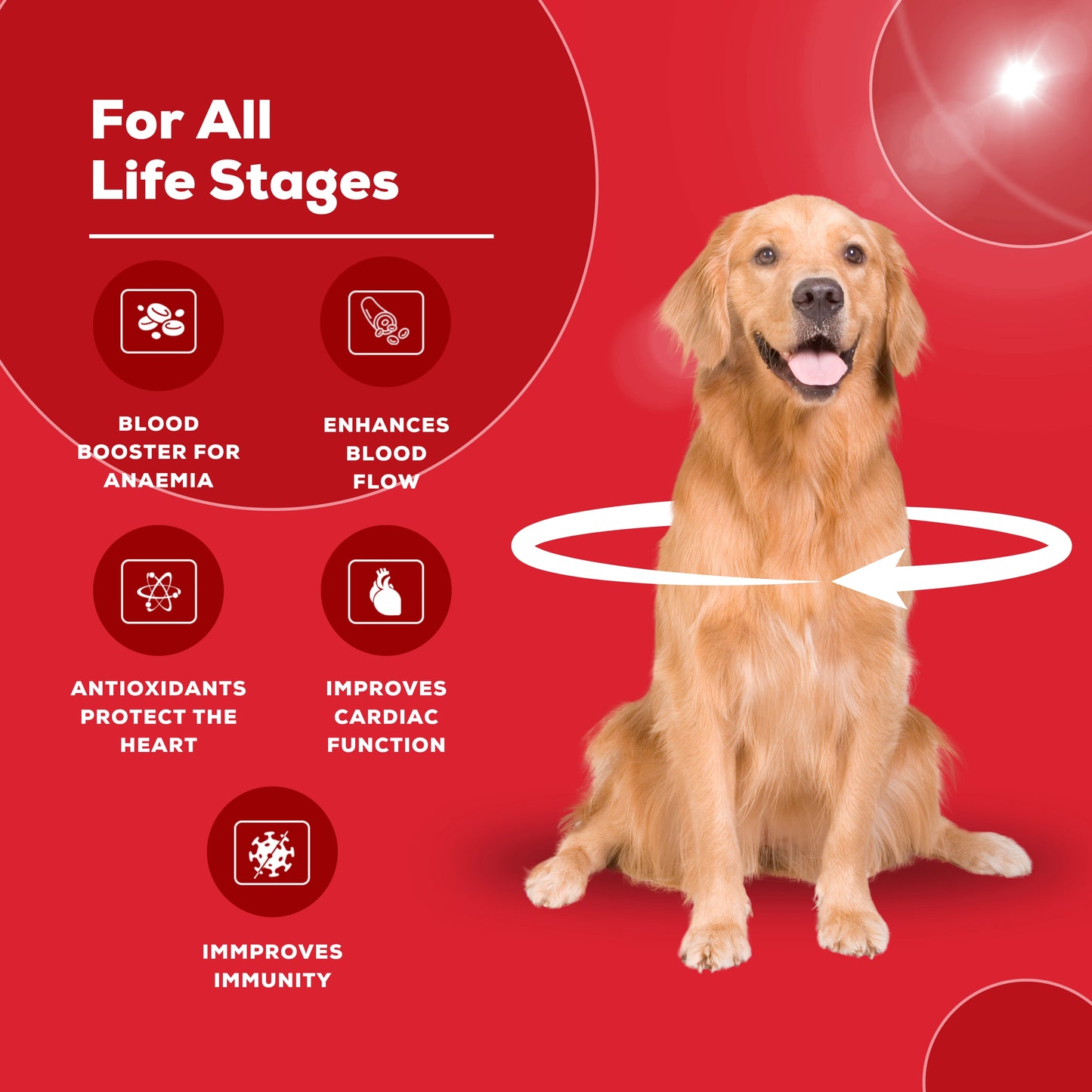

Benefits of Ingredients
-
Iron:
It is a trace element that is important for haemoglobin production, brain development, muscle activity, collagen production and regulation of body temperature. It also helps boost immunity. It is necessary for transport of oxygen throughout the body.
-
Copper:
It is a trace element and a micronutrient that plays an important role in the functioning of the nervous and cardiovascular systems. It plays a vital role in the formation of haemoglobin in blood. It also helps in the formation of collagen aiding in skin and joint health and may act as an antioxidant as well as help in the prevention of osteoporosis. It maintains coat pigmentation.
-
Arginine:
Helps boost the immune system by enhancing T-cell production. It helps improve blood flow in arteries of the heart. It aids in detoxification in the liver and kidneys, induces release of growth hormone and may help in male fertility problems and cardiovascular diseases.
-
Citrulline:
Boosts nitric oxide production in the body that helps improve blood flow. It plays an important role in the urea cycle, helping the body to get rid of harmful substances, particularly ammonia. It also plays an important role in widening the blood vessels (vasodilation) and may play a part in muscle building.
-
Taurine:
It is an amino acid that acts in the areas of fat metabolism, nerve and heart health. It has a protective effect on the brain. It helps strengthen heart muscles, regulate blood pressure, enables the liver to synthesise bile salts. Taurine is beneficial for reproduction, healthy eyesight and hearing. It is an important antioxidant.
-
L- Carnitine:
It helps to stabilize heart cell membranes and improve compromised cellular energy metabolism. It is beneficial for improving energy, muscle mass and mental functioning. It may also help in boosting red blood cell production in animals with chronic renal failure linked anemia.
-
Turmeric Extract:
Curcumin is the compound that gives turmeric its beneficial properties. It is a powerful antioxidant and has anti-inflammatory properties. It helps improve liver function, strengthens the immune system, enhances joint and bone health and may help fight against cancer.
-
Papaya Leaf Extract:
Contains acetogenin, which helps increase the platelet count. It builds elasticity and strength in the walls of blood vessels and protects the blood marrow, spleen and boosts immunity.
-
Beetroot Extract:
Boosts nitric oxide production, improves blood flow and lowers blood pressure.
-
Vitamin B1 (Thiamine):
It is a water-soluble vitamin that aids in metabolism of carbohydrates, fats and proteins, maintenance of normal growth, transmission of nerve impulses, and acetylcholine synthesis. Acts as an antioxidant that boosts kidney circulation. It is essential for healthy skin, hair, eyes and liver. Helps improve the immune system.
-
Vitamin B2 (Riboflavin):
It is a water-soluble vitamin. It is part of a number of coenzymes in most cells. It is also used for the production of red blood cells and antibodies that help fight diseases. It helps prevent cataracts and aids in energy production by cells of the body. Riboflavin works with vitamin A to maintain mucous membranes and helps the absorption of iron and vitamin B6 in the intestines. Assists in metabolism of nutrients including fats, carbohydrates, and proteins, and helps activate vitamins B3 and folic acid (B9). Acts as an antioxidant and helps in removal of waste products from the kidneys.
-
Vitamin B3 (Niacinamide):
It is a water-soluble vitamin. It is required for carbohydrate metabolism and energy production. Needed for healthy skin and proper circulation of the blood throughout the body. The secretion of bile and stomach acids requires niacin. Niacin lowers cholesterol and helps with the synthesis of hormones.
-
Vitamin B5 (Pantothenic Acid):
It is a water-soluble vitamin. It is involved in the production of adrenal hormones and antibodies, is an essential part of coenzyme A and enhances stamina.
-
Vitamin B6 (Pyridoxine):
It is a water-soluble vitamin. Helps in amino acid metabolism, synthesis of proteins, hormones and neurotransmitters. It promotes red cell production, cardiac functioning and sodium-potassium balance, antibody formation and immune system functioning. Needed for absorption of vitamin B12.
-
Vitamin B9 (Folic Acid):
It is a water-soluble vitamin. Plays an important role in synthesis of DNA, homocysteine metabolism, cellular division, RBC production, development of the nervous system and synthesis of neurotransmitters.
-
Vitamin B12 (Methylcobalamin):
It is a water-soluble vitamin necessary for energy production; for maintaining bone mineral health and to prevent osteoporosis, for nervous system function as it is needed to produce myelin, the protective sheath around nerves; for the production of acetylcholine, a neurotransmitter; for the synthesis of red blood cells; for producing the genetic materials, DNA and RNA, for production of collagen and for liver function and protection.
-
Vitamin A:
It is a fat-soluble vitamin, which is beneficial for eyes, immune system, bone metabolism and healthy skin. Helps in organ growth in a developing foetus. Acts as an antioxidant that eliminates free radicals and prevent cell & tissue damage, slows down the process of ageing, helps in preventing cardiovascular diseases, cancer, inflammatory diseases, etc.
-
Vitamin D3 (Cholecalciferol):
It is a fat-soluble vitamin. It is needed for proper absorption of calcium and phosphorus from the intestinal tract. It is needed for normal growth and development of bones and teeth; it protects against muscle weakness, and regulates the heart. Vitamin D helps prevent osteoporosis & anaemia, enhances immunity, and is needed for proper thyroid function and blood clotting.
-
Vitamin E:
It is a fat-soluble vitamin. Powerful antioxidant that eliminates free radicals and prevents cell & tissue damage, slows down the process of ageing, helps in preventing cardiovascular diseases, cancer, inflammatory diseases, maintaining healthy skin and coat, etc.
-
Vitamin K:
It is a fat-soluble vitamin that is needed for the proper clotting of blood. It may also help prevent osteoporosis, as it is needed for the synthesis of the bone protein (osteocalcin) involved in calcium crystallization. Vitamin K also aids in converting glucose into glycogen for energy storage in the liver and in healthy liver function.

Note:
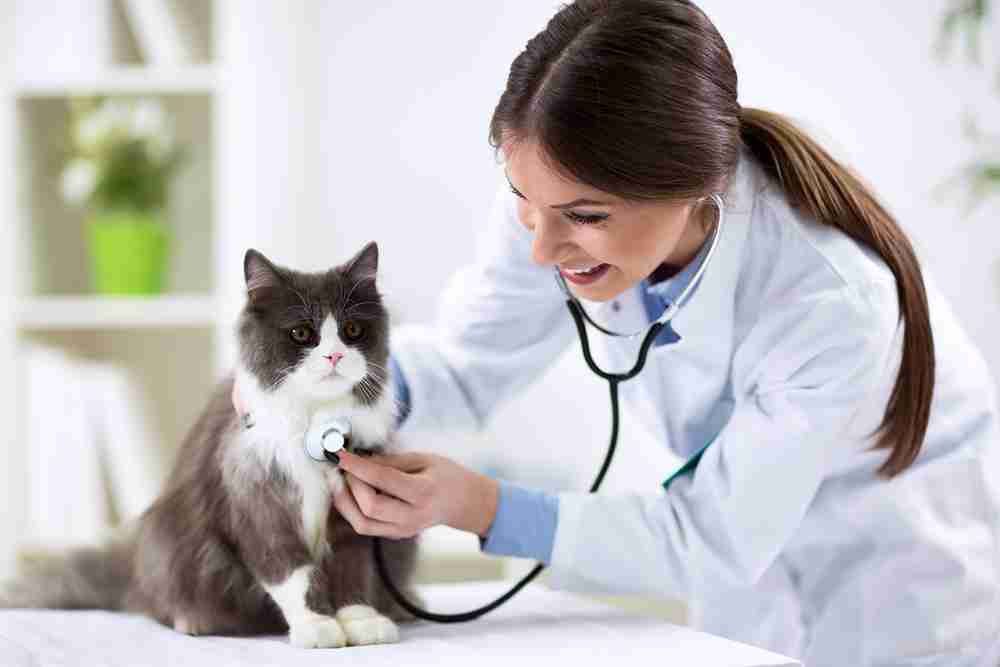
Endorsed by Experts, Trusted by Pets Parents!
Shop Combo
-
Soft & Shine: Omega+ (150ml) & Fur+ (45 Tablets)
Regular price Rs. 875.00 (15% OFF)Regular priceUnit price perRs. 1,030.00Sale price Rs. 875.0015% OFF -
Ultimate Health : Amino+ & Omega+ (150ml each)
Regular price Rs. 695.00 (16% OFF)Regular priceUnit price perRs. 835.00Sale price Rs. 695.0016% OFF -
Mobility Care : Flexi+ (45 Tablets) & Omega+(150ml)
Regular price Rs. 1,160.00 (20% OFF)Regular priceUnit price perRs. 1,450.00Sale price Rs. 1,160.0020% OFF -
Coat Booster: Amino+ (250ml) & Fur+ (90 Tablets)
Regular price Rs. 1,192.00 (20% OFF)Regular priceUnit price perRs. 1,490.00Sale price Rs. 1,192.0020% OFF

